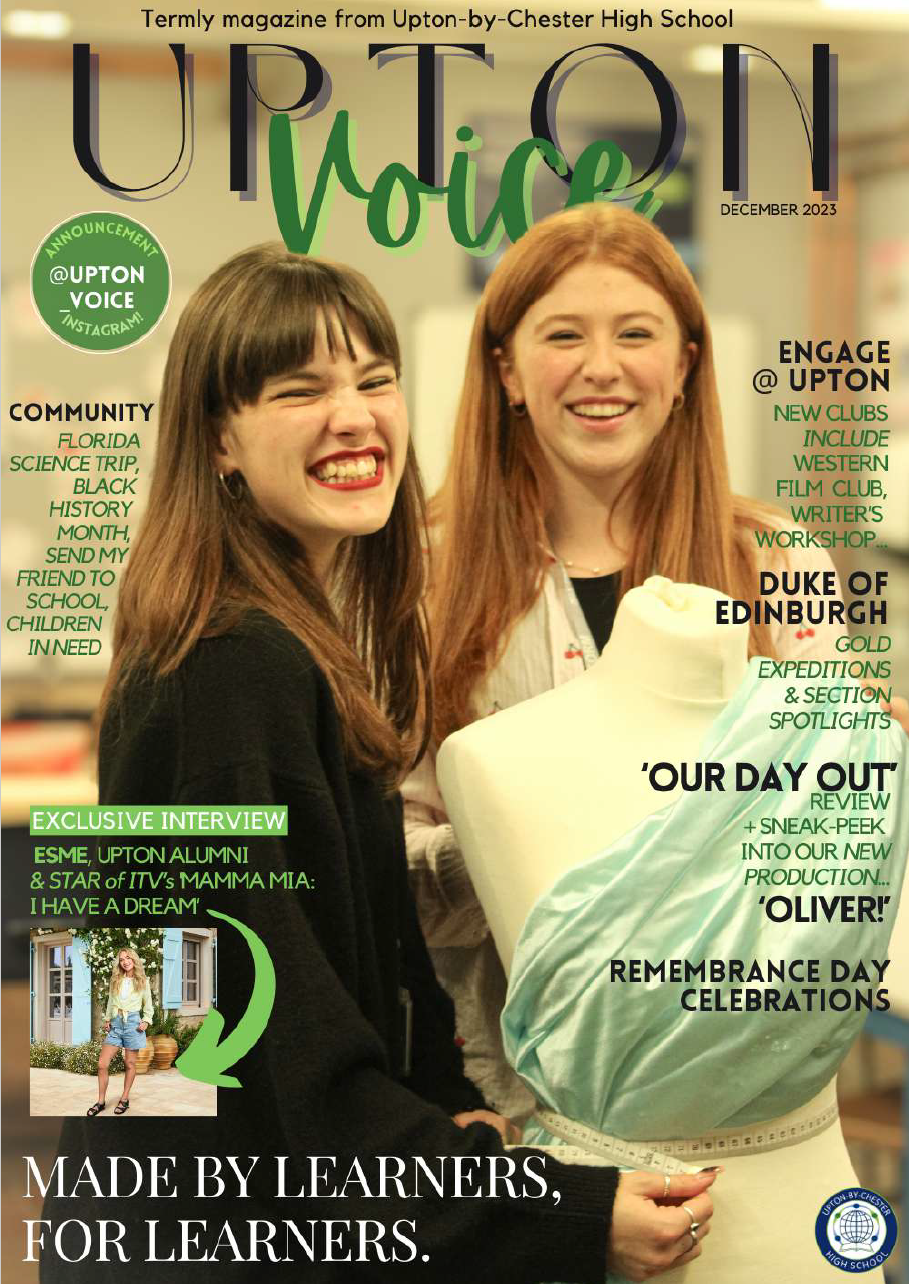Upton Voice Newsletter
Please click on the image to view the latest Upton Voice (rotate to landscape mode on mobile).
Our previous editions of the Upton Voice can be viewed here. Please follow us on X @UptonVoice and Facebook https://www.facebook.com/UptonbyChesterHighSchool/ for our latest updates.








